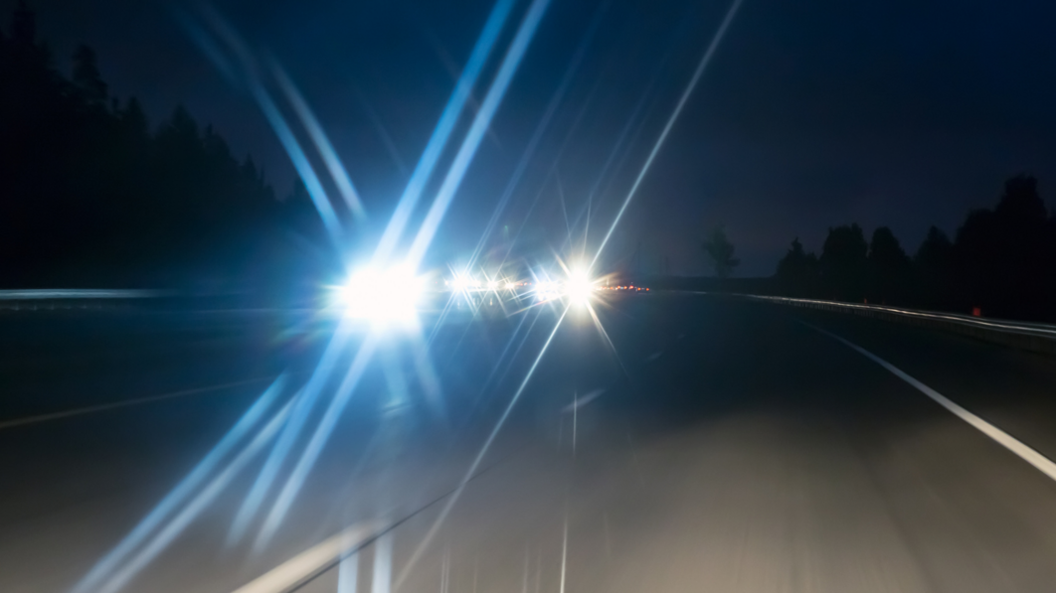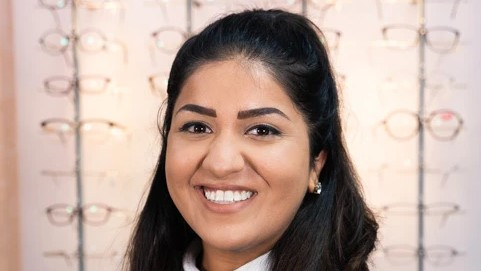'My patients complain about dazzling headlights'

The first independent research is being carried out into the impact of bright headlights on drivers
- Published
An optometrist has said 80% of her patients complain about being dazzled by vehicle headlights.
Aashika Patel, who works at an opticians in Chelmsford, said it was a problem that seems to have got worse in the last five years.
"The older generation of my patients are shying away from driving at night," she said.
It comes as the Transport Research Laboratory (TRL) - a private transport consultancy - carries out the first independent research into the impact of bright beams on drivers, a study welcomed by the RAC, external.

Optometrist Aashika Patel says more of her patients are complaining about bright headlights
Ms Patel said: "I see around 10 patients a day and eight out of 10 patients will complain about this problem.
"It's a common thing for them to say that they are not comfortable, the lights are too bright, 'I don't feel confident anymore'.
"It doesn't harm the eye, it just causes a lot of glare."
John Tinham, a mechanic from Chelmsford, told BBC Essex he believed many headlights are not adjusted properly.
"I kept getting flashed by other cars and I thought 'there must be something in this', so I took it to a testing station but they said nothing was wrong.
"I then took it to another testing station and they said the lights were way too high, so I adjusted the lights myself, and it only took me three minutes."
The new research comes after an increasing number of drivers reported being dazzled by oncoming headlights.
The RAC said it had campaigned for a study for many months.
TRL is expected to report its findings to the Department for Transport in 2025.
Related topics
- Published6 November 2024